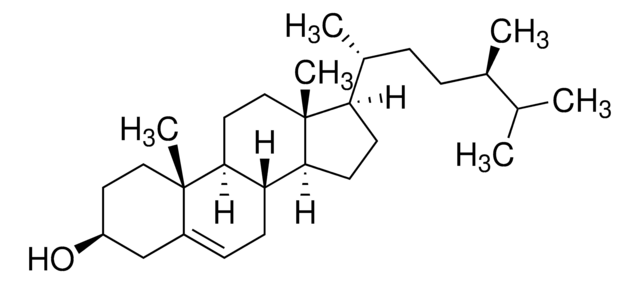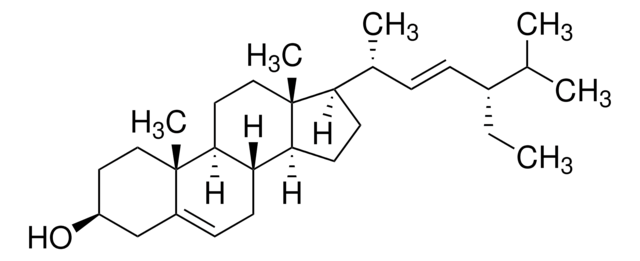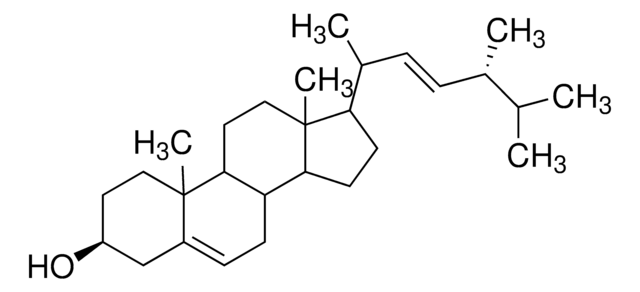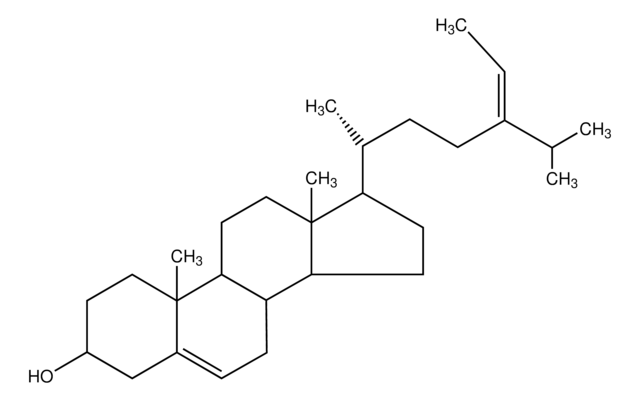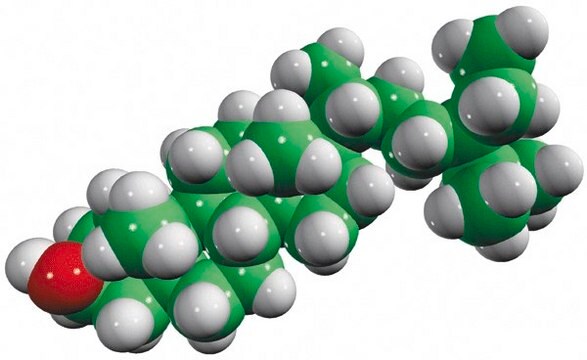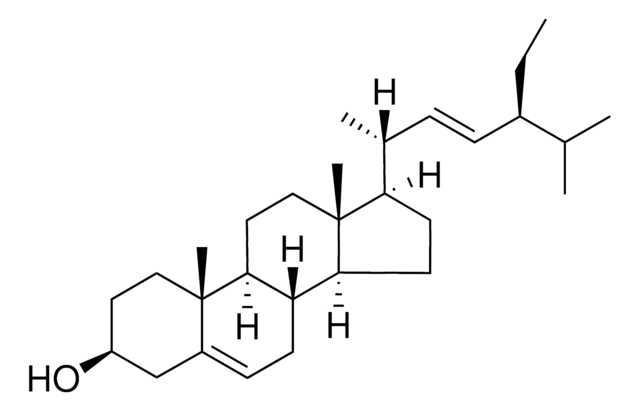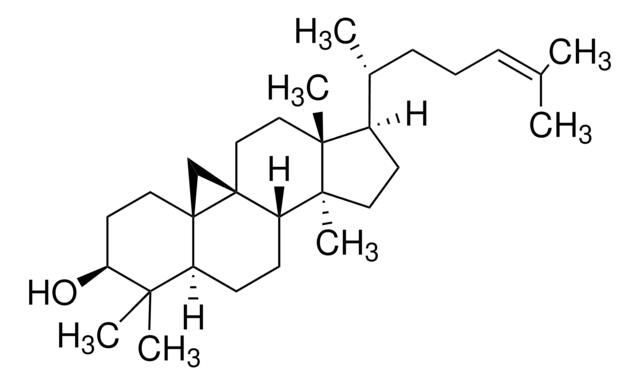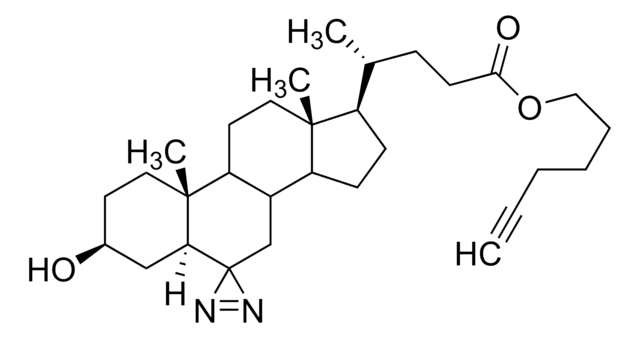B4936
Brassicasterol
from semisynthetic
Synonym(s):
5,22-Cholestadien-24β-methyl-3β-ol
About This Item
Recommended Products
biological source
semisynthetic
Assay
≥98% (TLC)
form
powder
shipped in
wet ice
storage temp.
2-8°C
SMILES string
CC(C)[C@@H](C)\C=C\[C@@H](C)[C@H]1CC[C@H]2[C@@H]3CC=C4C[C@@H](O)CC[C@]4(C)[C@H]3CC[C@]12C
InChI
1S/C28H46O/c1-18(2)19(3)7-8-20(4)24-11-12-25-23-10-9-21-17-22(29)13-15-27(21,5)26(23)14-16-28(24,25)6/h7-9,18-20,22-26,29H,10-17H2,1-6H3/b8-7+/t19-,20+,22-,23-,24+,25-,26-,27-,28+/m0/s1
InChI key
OILXMJHPFNGGTO-ZAUYPBDWSA-N
Related Categories
Application
Biochem/physiol Actions
Preparation Note
Storage Class Code
11 - Combustible Solids
WGK
WGK 3
Flash Point(F)
Not applicable
Flash Point(C)
Not applicable
Certificates of Analysis (COA)
Search for Certificates of Analysis (COA) by entering the products Lot/Batch Number. Lot and Batch Numbers can be found on a product’s label following the words ‘Lot’ or ‘Batch’.
Already Own This Product?
Find documentation for the products that you have recently purchased in the Document Library.
Customers Also Viewed
Articles
Cholesterol synthesis regulation by dietary levels, LDL receptors control lipid-rich LDL particle transport in cells.
Protocols
Separation of Cholesterol; Brassicasterol; Campesterol; Stigmasterol; β-Sitosterol
Our team of scientists has experience in all areas of research including Life Science, Material Science, Chemical Synthesis, Chromatography, Analytical and many others.
Contact Technical Service